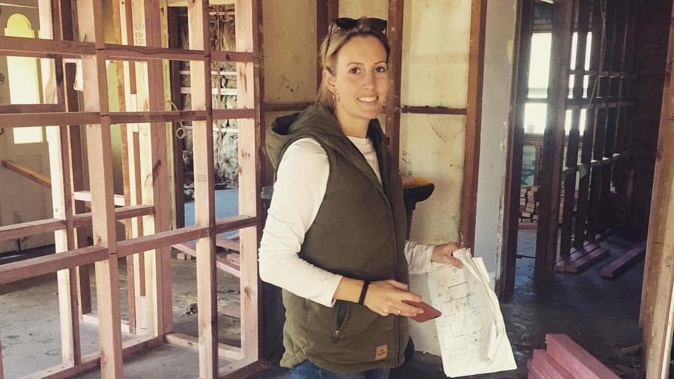
Home buyers are offering too much money on houses without realising the true amount it will cost to carry out renovations, a consultant says.
The result is disappointment all round - for the other buyers who missed out on getting a house, and the ones who spent the majority of their budget on one, only to realise the price to bring it up to scratch was well above what they could afford.
Project manager Jen Jones, who runs a business specialising in helping rookie renovators stick to a budget, said nine times out of a 10 a home buyer's budget goals were completely unrealistic for the work that a house needed.
"There's a real misalignment and expectation in budgets. If you don't look at that at the beginning you're just setting yourself up for failure and disappointment," Jones said.
The Auckland woman, who owns Nine Yards Consulting, said she might attend an auction with the understanding a house would require $200,000-$250,000 of renovation work, while other, less-experienced bidders might assume it would only take $50,000-$100,000 to fix up.
That meant the other bidders would be willing to bid higher on the property, then end up with a house that needed renovations outside of their budgets.
Part of the issue was people not having a firm grasp on how much labour and materials cost, and part of it was also that people regularly did not factor in the associated costs of certain work.
For example, replacing a regular door with a sliding cavity door might seem simple, but involved costs for relining, and painting the walls around it.
Renovators also often thought it would be simple to knock out a wall, but didn't consider the combined cost of council fees, architects and engineers, regibbing, plastering, sanding and painting, on top of materials and labour.
"I think people just kind of see it as a bit of timber and gib," Jones said.
People should also consider the difference in cost for renovations for the area they buy in.
If someone was to buy a house in Ponsonby and redo the bathroom, when they were reselling five years down the track a new buyer would likely expect a fully-tiled bathroom, she said.
Even jobs like swapping out tapware in kitchens and bathrooms could cost more than expected, and involved more than simply pricing up the cost of the replacement materials.
"Knowing what a plumber's going to cost is a bit of a fine art."
Jones, who has a background in commercial construction and switched to residential about 18 months ago, helps clients adjust their renovation expectations to meet their budget, although often the budget has to adjust a little bit too.
"Be prepared to make compromises," she said.
"I think homeowners would be overwhelmed to understand actually all of the things that go into something that looks quite simple.
"People will come to me and enquire around their project . . . probably only 20 per cent of them have realistic budgets."
For Jones, the important things to factor in when buying a house include whether it has been rewired recently, what condition the roof is in, that the layout of the house was as desired, and that it was oriented in a way the buyer was happy with.
She also recommended people who didn't want to spend a great deal on renovations make sure it had "good bones", including by making sure it didn't need repiling, new joinery, insulation and the like.
Jones provides free resources on her website for anyone looking to get their head around renovations and budgets.
Lower-cost renovations that can make a difference without blowing the budget
Jones' tips are dependent on the individual's definition of low cost, but she said some of the things she has done in the past to make a noticeable difference to a house with relatively low cost include:
- Putting new handles on cabinets
- Replacing kitchen cupboards with open shelves
- Replacing splashbacks
- Using special renovation paints to paint cabinetry or ugly tiles
- Hanging thermal curtains
- Repainting a house (though the cost can vary greatly if it was a DIY job)
Take your Radio, Podcasts and Music with you









